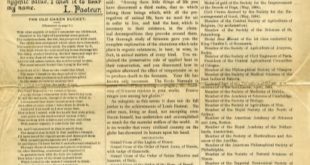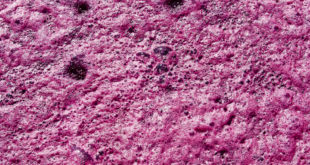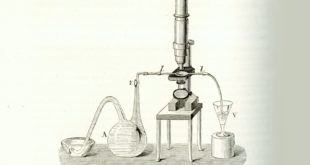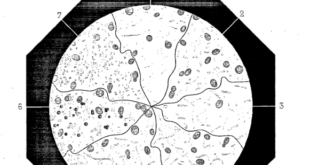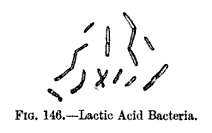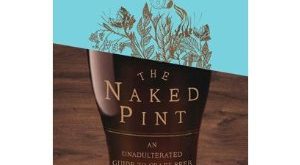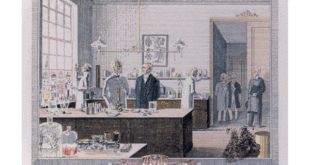Originally published January 24, 2014 by the US National Library of Medicine Circulating Now welcomes guest bloggers Diane Wendt and Mallory Warner from the Division of Medicine and Science at the Smithsonian National Museum of American History. As curators of our most recent exhibition, From DNA to Beer: Harnessing Nature in Medicine and Industry, Diane and Mallory spent months researching …
Read More »Beer, Wine and Fermentation
“Graisse” Disease of Wines – Maladie de la Graisse
Originally published in the Journal of the Institute of Brewing, Volume 14, 1908, p. 201 by E. Kayser and E. Manceau (Comptes rend. de l’Acad. des Sciences, 1908, 146, pp. 92-94) The authors have previously observed the existence of two groups of “graisse” ferments. The organisms of the first group present nearly rectilinear chains, are resistant to a fairly high …
Read More »Device to Examine Beer Sample without Contamination from Pasteur’s Studies on Beer
In 1876 Pasteur published his Études sur la Bière (Studies on Beer). This illustration from his book demonstrates a method for examining the yeast in beer without exposing the sample to contamination from other microorganisms. His publication included plans for a fermentation tank that would prevent air-borne bacteria from entering and spoiling the brew. Here you will find individual descriptions …
Read More »Review of Pasteur’s “Etudes sur la Biere”
This review was originally published in the Pharmaceutical Journal and Transactions, November 17, 1877, pp. 395-397. REVIEW Etudes sur la Bière, ses Maladies, Causes qui les Provoquent, Procédé pour la rendre inaltérable, avec une Théorie nouvelle de la Fermentation Par M. L. Pasteur, Paris: Gauthier-Villars. 1876. It is part of the creed of the average English beer drink, that the …
Read More »Louis Pasteur, Wine Disease and Napoleon
For some time during the 19th century, the French wine industry was burdened by different diseases that caused wine to become sour, bitter or flavorless. Knowledge of French wine diseases spread throughout Europe, greatly damaging the wine export sector in France. An English merchant said this just after the treaty agreement between France and Great Britain in 1863: In the …
Read More »Pasteur’s Study of Fermentation
Louis Pasteur first devoted himself to the study of fermentation in 1856, when he is approached by M. Bigo, a local industrialist in Lille, and asked for advice concerning the production of alcohol in beet juice. Apparently Bigo was experiencing large vats of beet juice turning sour instead of alcoholic as expected. Pasteur agreed to help with the problem and …
Read More »Louis Pasteur, Fermentation and Beer Quality
“In 1876, Louis Pasteur brought beer forward by describing the basis for fermentation that beer was fermented not by chemicals but by microorganisms–that is, yeast. He noted that bacteria, mold, and wild yeast were often responsible for the sour beer that plagued France and other countries. With this new understanding, he and other scientists began to refine techniques that could …
Read More »Louis Pasteur on Brewing Beer
Originally published in the “English mechanic and world of science, Volume XXIII” in 1876. M. PASTEUR has just published with the title, Etudes sur la Biere, a book which is indeed a book of combat. For more than fifteen years this eminent chemist has given his attention to fermentations; he has considerably forwarded their study. Extending his views, he has …
Read More »A Service to Brewers
Originally published in the “The Review of reviews, Volume XII” in 1895 The studies on wine prepare us for the “studies on beer,” which followed the investigation of silk worm diseases. The sourness, putridity, and other maladies of beer, Pasteur traced to special’ ferments of disease,’ of a totally different form, and therefore easily distinguishable from the true torula or …
Read More »A Text-Book of the Science of Brewing
Excerpt from Chapter VII, Fermentation published in 1891 In the preceding chapters we have described the preparation of worts, their hopping, boiling, cooling, and aeration. In this chapter we have to deal with the conversion of the wort into beer by fermentation. To effect this change we employ yeast, the main function of which is to convert the maltose and …
Read More » Pasteur Brewing Louis Pasteur – Science, Health, and Brewing
Pasteur Brewing Louis Pasteur – Science, Health, and Brewing 